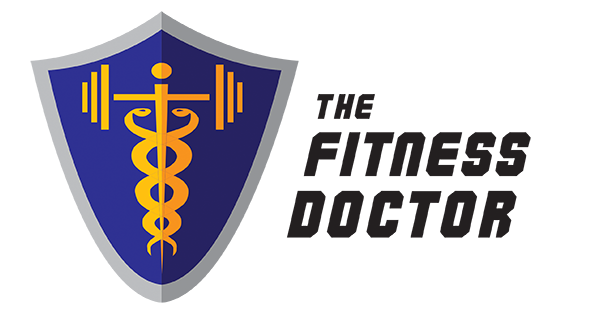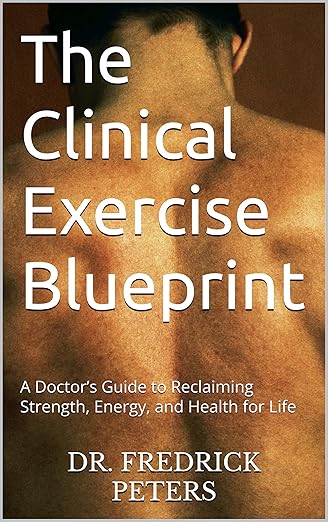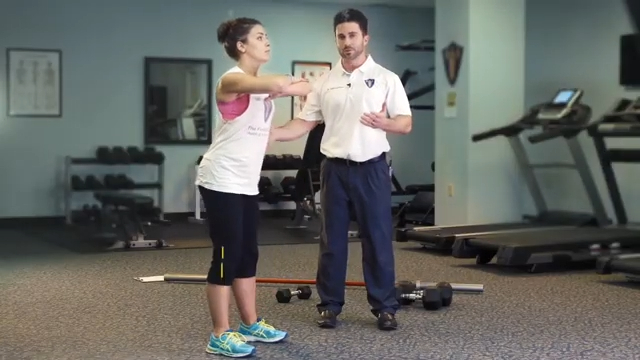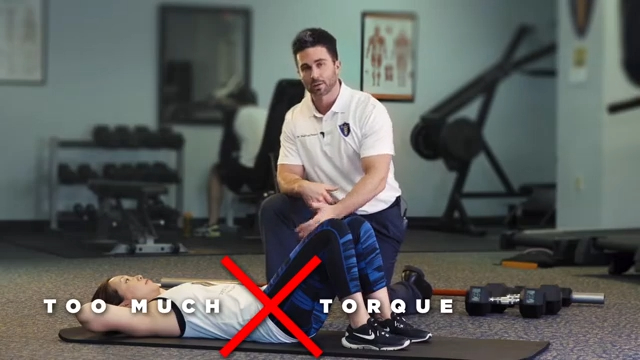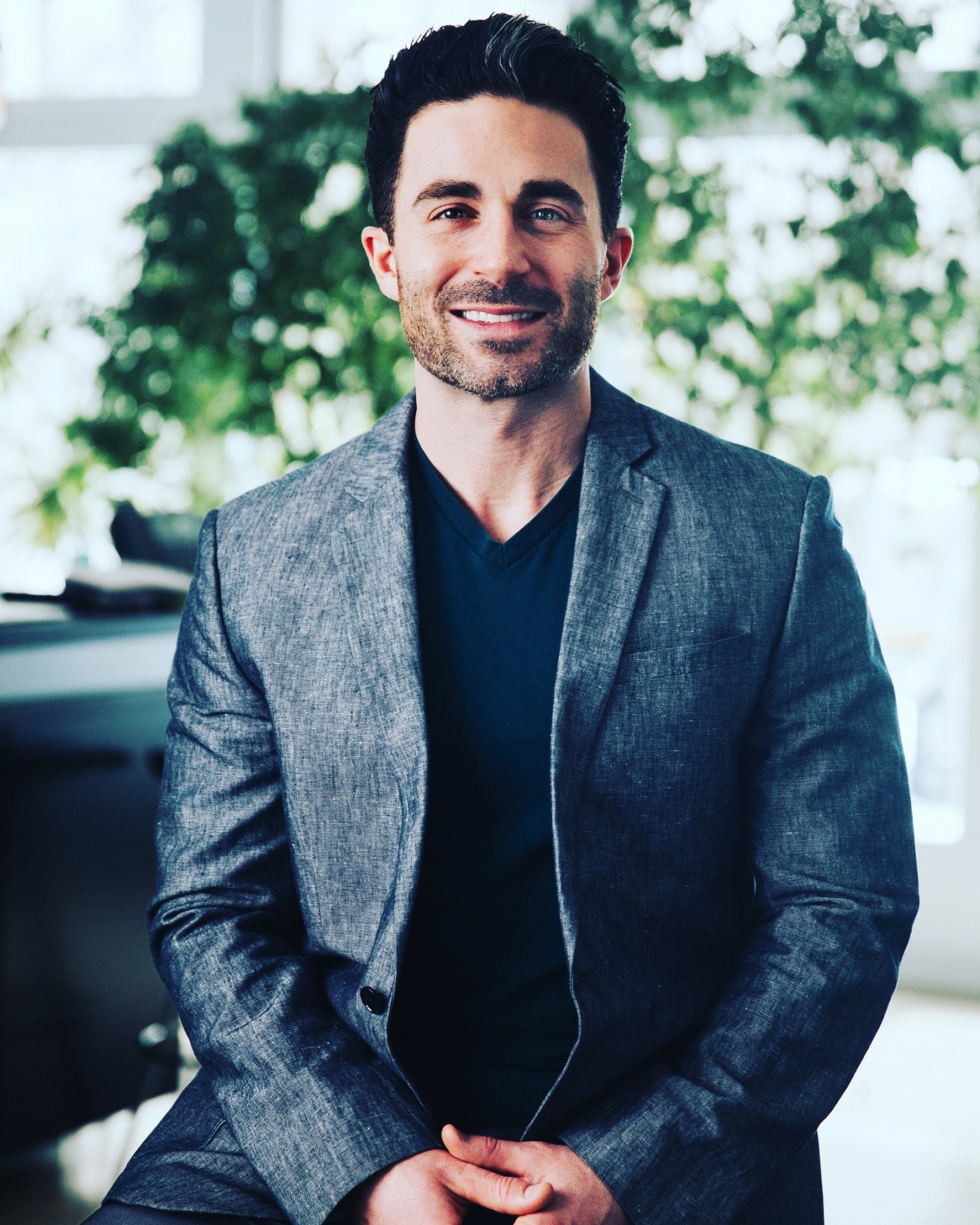We recently connected with Fredrick Peters and have shared our conversation below.
Fredrick , thanks for taking the time to share your stories with us today We’d love to hear the backstory behind a risk you’ve taken – whether big or small, walk us through what it was like and how it ultimately turned out.
When I finished my PhD in Exercise Physiology, I was sitting on what felt like a mountain of student loan debt. Conventional wisdom said I should play it safe, get a stable job, tighten the belt, and slowly chip away at the loans. But deep down, I knew I wanted to create something of my own. I had a vision to build a business that combined the clinical knowledge I had gained through my doctoral training with the hands-on approach of personal training.
So, instead of taking the “safe route,” I opened my own fitness business “The Fitness Doctor.” It was a risk on every level: financial, personal, and professional. I didn’t have investors or a trust fund. What I had was an idea, a lot of passion, and a determination to do things differently. Most gyms focus on aesthetics alone. I wanted to create a space where exercise was truly treated as medicine, where clients with diabetes, heart disease, or orthopedic issues could get evidence-based training that not only changed how they looked but also transformed their long-term health.
There were nights when I lay awake wondering if I had made a mistake. Rent was due, student loan payments loomed, and I questioned whether people would even understand the concept I was trying to build. Little by little though, clients started coming. I recall many summers of walking door to door, putting flyers in mailboxes. I knew my concept was sound, there was (and still is) a gap in this profession of “personal training.” There are no legal requirements to call yourself a “trainer”. It is a profession governed by “influencers”, or “weekend-certification selfie-takers” who do not possess any credentials. I knew if I got my name out there, people would appreciate this doctoral-level approach.
Fast forward more than a decade, and The Fitness Doctor has trained hundreds of clients, many of whom have been with us for years. That initial risk not only paid off financially, but it also became the foundation of my career. Today, I’ve expanded my reach into academia, publishing, and building a national brand, but I’ll never forget those early days when I was betting on myself with nothing but student debt, a vision, and a lot of grit.
Looking back, it was definitely a risk, but I was young (without a family), and I knew if I put in the time, I would succeed. But it also taught me the most important lesson I share with my clients and students: there’s rarely a “perfect” time to take a leap. If you wait for all the stars to align, you’ll be waiting forever. Sometimes the risk itself is the catalyst that forces you to grow.
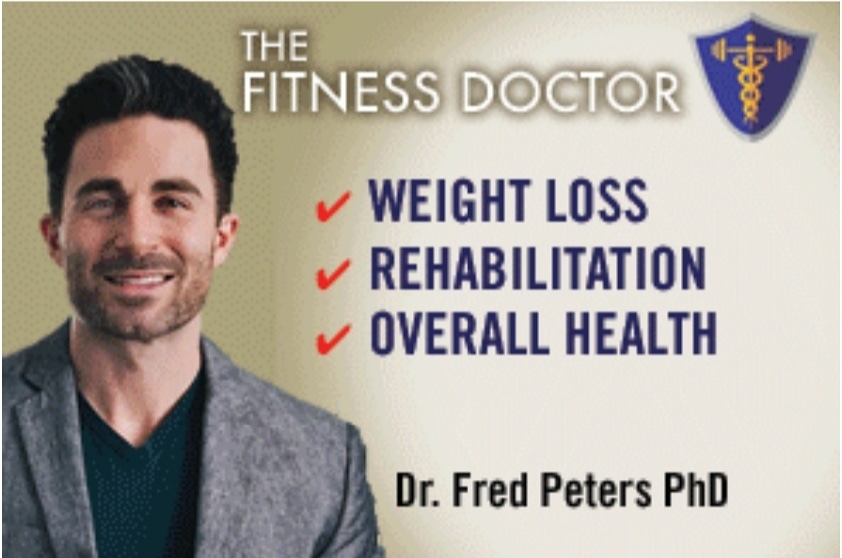
Fredrick , love having you share your insights with us. Before we ask you more questions, maybe you can take a moment to introduce yourself to our readers who might have missed our earlier conversations?
I often describe myself as someone who lives at the intersection of science, fitness, and entrepreneurship. I hold a PhD in Exercise Physiology and serve as an Assistant Professor of Applied Exercise Science at Concordia University Chicago. Alongside my academic career, I’ve spent more than a decade building and running The Fitness Doctor, a personal training company in Ohio focused on helping people not only look better, but live healthier, longer lives. More recently, I’ve launched a new national brand, DrFredPeters.com, to bring that same evidence-based approach to a broader audience through digital platforms, writing, and speaking.
I got into this field because I’ve always been fascinated by the way exercise and lifestyle can literally change the trajectory of someone’s life. Early in my career, I noticed a big gap: many fitness businesses were focused almost entirely on aesthetics, while the healthcare system often overlooked exercise as a frontline treatment. I wanted to bridge that gap by creating programs that are not only safe and effective, but also grounded in clinical science. That vision has guided everything I’ve done, whether training clients one-on-one, teaching graduate students, or writing resources for people looking to improve their health.
The services and products I provide span from in-person and virtual personal training to educational resources like my book, “The Clinical Exercise Blueprint”. I’ve also created a series of digital guides and programs designed specifically for middle-aged and older adults, people who are often overlooked by mainstream fitness culture. These include an 8-week training plan, mobility and recovery guides, and supplement quick-start resources, all packaged to give people practical tools they can use right away.
What sets me apart is the integration of clinical knowledge and real-world experience. I’m not just an exercise physiologist and professor, I’ve competed in physique competitions, worked with clients battling diabetes and heart disease, and spent years mentoring doctoral students in exercise science. That combination of academic rigor and hands-on coaching allows me to deliver advice and programs that are both scientifically sound and highly practical.
I’m most proud of the fact that my work has genuinely changed lives. Clients will come in with a host of clinical concerns, on multiple medications, and depressed with their situation, and they always leave with improved lab numbers, less pain, a healthier lifestyle and a renewed sense of independence. Students have gone on to become leaders in exercise science and allied health professions.
If there’s one thing I want readers to know about my brand, it’s this: I believe exercise is the most powerful medicine we have. My mission is to give people the tools, knowledge, and confidence to take charge of their health, so they can stay healthy for as long as possible.

How about pivoting – can you share the story of a time you’ve had to pivot?
My undergraduate degree concentrated in business. I had worked for my father’s business for several years. Once I graduated, I realized that his business model was not sustainable and was in danger due to the economic crisis. I had to pivot drastically. I always had a passion for health, so I started taking pre-medical courses in the evenings, then enrolled in a master’s program, then eventually achieved my doctoral degree.
It was certainly challenging to completely change my career path after just having finished college. Not to mention I graduated at the peak of the 2008 economic collapse. However, I am glad I made the decision, despite being criticized by family and friends for making the switch.

Other than training/knowledge, what do you think is most helpful for succeeding in your field?
Other than formal training and scientific knowledge, I believe the single most important factor for succeeding in this field is the ability to connect with people. At the end of the day, exercise science and fitness are about human behavior, not just physiology. You can design the most perfectly structured program on paper, but if you can’t inspire someone to follow through, or adapt it to fit their lifestyle, it won’t work.
Empathy, communication, and trust-building are what set great professionals apart. Clients and students need to know that you care about them as individuals, not just as case studies or data points. In my career, I’ve learned that listening deeply often teaches me more than talking. It’s through understanding someone’s struggles, fears, and motivations that you can help them make real change.
Resilience is another piece. This industry is challenging. It is tough to build a business selling a service that people either don’t want to do (because it takes effort), do want to pay for (because it is considered a luxury service), or both. There are long hours, slow growth phases, and plenty of rejection along the way. What keeps you moving forward is having a clear mission and the persistence to stay the course when things get difficult. For me, keeping sight of my “why”, the belief that exercise is medicine and can change lives, and that my business model was better than my competition, kept me on track.
So, while knowledge and training are essential, it’s the combination of human connection, adaptability, and persistence that truly drives long-term success in this field.
Contact Info:
- Website: https://www.thefitnessdoctors.com
- Instagram: https://www.instagram.com/therealfitnessdoctor/
- Linkedin: https://www.linkedin.com/in/fredrickpeters/
- Youtube: https://www.youtube.com/@therealfitnessdoctor
- Other: https://www.drfredpeters.com
